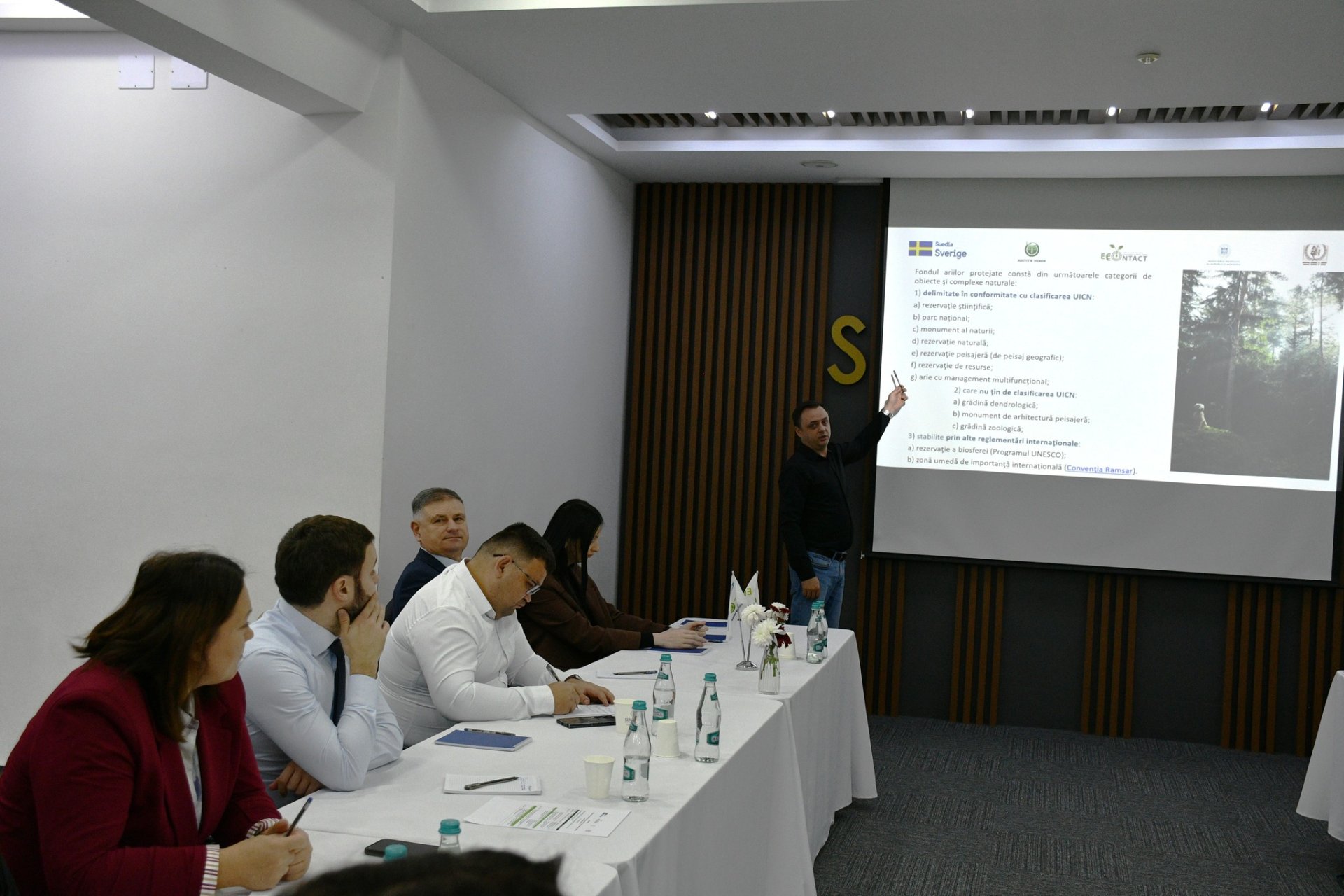
Implementation of new Forestry Code and environmental legislation under focus of prosecutors and judges
The environmental legal framework, with a focus on the new Forestry Code, legislation regarding protected natural areas and the hunting fund was the central topic of the second session within the continuous training module for prosecutors and judges. The event was organized by EcoContact, in partnership with the Ministry of Environment and the National Institute of Justice (INJ).
The session brought together 17 magistrates from various regions of the country and aimed at the practical application of recent legislative changes in the forestry field. Participants analyzed cases regarding illegal tree logging, unauthorized constructions in protected areas, and poaching incidents, discussing ways to determine environmental damages, according to Government Decision no. 446/2025, as well as legal liability for environmental contraventions and crimes.
The trainers – experts from EcoContact, the Ministry of Environment (Adrian Scutelnic), the Environmental Protection Inspectorate (Ion Caliniuc, Vladimir Rusu, and Victor Dumneanu), and INJ (Alexandru Corețchii) – presented the updated regulations and facilitated interactive discussions on the competencies of institutions and the uniform application of the law.
Furthermore, part of the training was dedicated to the legal regime of hunting and the conservation of the hunting fund, with participants being familiarized with relevant theoretical orientations and practical applications. Magistrates expressed interest in harmonizing judicial practices in environmental cases and strengthening ecological justice mechanisms in the Republic of Moldova, according to EcoContact.
The continuous training program will continue on November 5, 2025, with a session dedicated to the management of water, soil, and underground resources.
The activity takes place within the project “Green Justice for a Protected Environment and Sustainable Communities in the Republic of Moldova,” implemented by AO EcoContact with financial support from Sweden.
Moldova not to be affected by sanctions on Russian oil companies, speaker says
Ministry of Foreign Affairs announces evacuation operation of citizens from Gaza Strip with international support
Environmental protection has become national priority - environment minister says
DOC // President appointed Alexandru Munteanu as candidate for Prime Minister
Speaker provided details on nomination process for Prime Minister candidate
Justice Minister's report: Over 400 extraditions completed and EU directives implemented in recent years
Acting justice minister: Judicial system reconfigured, over 100 new judges and 37 new prosecutors promoted
Minister of Justice presents activity report: Over 65% of 2020-2025 strategy actions accomplished
Nicolae Testemitanu Medical University of Moldova awards honorary title of Doctor Honoris Causa to professor, president of Romania's National Council of Rectors
European Commissioner says current determination to shape Moldova's place in Europe for next generations
Moldovan parliament approves establishment of 12 standing commissions of XIIth legislature
Territorial reform, local autonomy under spotlight of Council of Europe; recommendations for Moldova
Members of standing bureau held first meeting
President at Paris Peace Forum: Social media platforms – once promise of freedom and transparency – have become vast spaces of manipulation
High-level dialog on finance and economic growth held in Chisinau
Implementation of new Forestry Code and environmental legislation under focus of prosecutors and judges
MOLDPRES REPORT // Friendship, respect, partnership: 102 years since proclamation of the Republic of Turkey celebrated in Chisinau
Moldovan president's speech at Paris Peace Forum
Moldovan president meets PM of Armenia
Moldovan president says Kremlin used disinformation at parliamentary elections, so as to undermine trust in free voting, subsequently seize power in Moldova
PHOTO GALLERY // Consultations at Moldovan parliament; PM-designate discusses with parliamentary factions' representatives
Moldovan president at Paris Peace Forum says Europe must grow - EU enlargement not act of charity, but of security
Sanctions on LUKOIL do not affect aircrafts' refueling in Chisinau at present
PM-designate says had constructive consultations with parliamentary factions, to analyze proposals made
EU Parliament's Office in Chisinau to be inaugurated on November 7; European Parliament president to attend event

